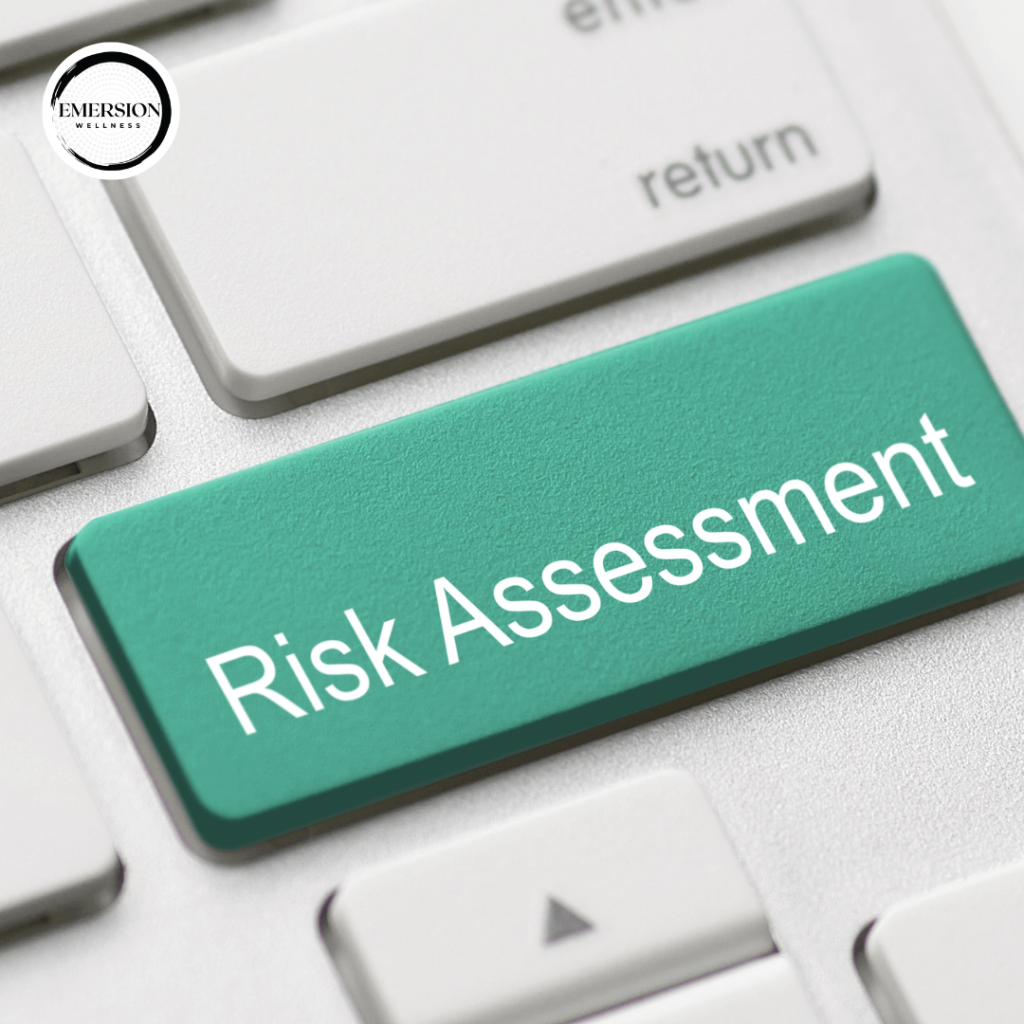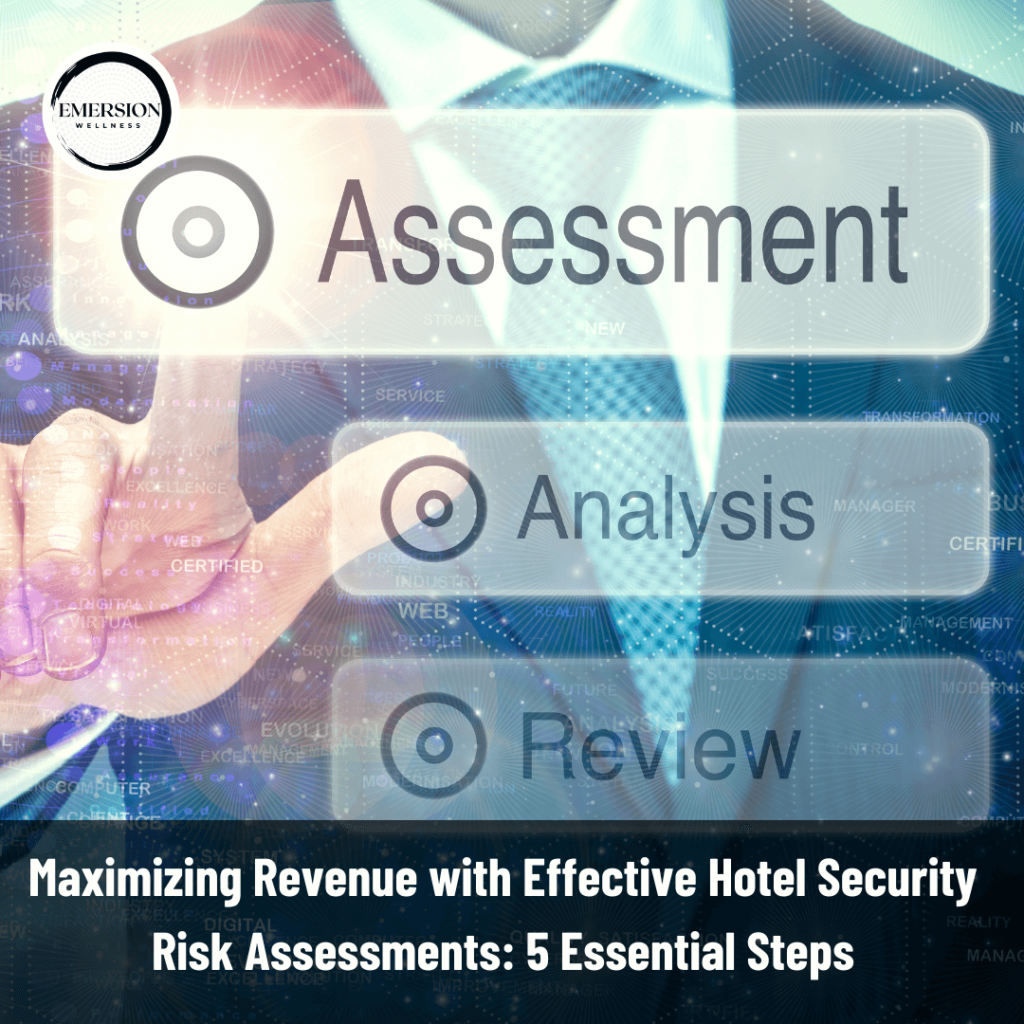In the hospitality industry, security risk assessments are pivotal in ensuring the safety of guests, staff, and property. A comprehensive hotel security risk assessment mitigates potential threats and plays a crucial role in maximizing revenue. As a hotel revenue-generating specialist, I've seen how effective security strategies can enhance guest satisfaction and drive profitability. This article explores the critical aspects of hotel security risk assessments and how they can be leveraged to boost revenue.
Critical Takeaways
- Thorough risk assessments lead to improved guest safety and trust.
- Identifying and mitigating risks reduces liability costs.
- Strategic security measures enhance overall hotel efficiency and revenue.
1. Understanding the Importance of Hotel Security Risk Assessments
Enhancing Guest Trust and Loyalty
Guest trust is fundamental to a hotel's success. A secure environment fosters trust, leading to repeat visits and positive word-of-mouth. For instance, a luxury hotel in Perth improved its security protocols and saw a 25% increase in returning guests within a year. This demonstrates the direct correlation between robust security and guest loyalty.
Reducing Liability and Insurance Costs
Effective risk assessments help identify potential threats, allowing hotels to implement measures that reduce the likelihood of incidents. A study by the Australian Hotel Association found that hotels with comprehensive security measures reported 30% fewer incidents, leading to lower liability and insurance costs.
Improving Operational Efficiency
Hotels can streamline their operations by identifying security vulnerabilities to address these issues effectively. A hotel in Sydney optimized its security protocols based on a thorough risk assessment, resulting in a 20% improvement in operational efficiency.
Boosting Online Reviews and Reputation
Positive guest experiences often translate to favorable online reviews. A hotel in Brisbane upgraded its security systems and saw a 40% increase in positive reviews mentioning safety. Such reviews attract new guests and boost occupancy rates, directly impacting revenue.
Attracting High-Profile Events and Conferences
Hotels with robust security measures are preferred venues for events and conferences, as organizers prioritize the safety of attendees. By showcasing their security infrastructure, hotels can attract high-profile events, leading to increased revenue.

2. Conducting a Comprehensive Security Risk Assessment
Identifying Potential Threats
The first step in a security risk assessment is to identify potential threats, both internal and external. This includes analyzing crime statistics, guest feedback, and historical incident data. A hotel in Adelaide conducted a thorough threat analysis and identified key areas for improvement, leading to a 35% reduction in security incidents.
Evaluating Vulnerabilities
After identifying threats, the next step is to evaluate the hotel's vulnerabilities. This involves assessing physical security measures, staff training, and existing protocols. A hotel in Melbourne found that its access control systems were outdated and upgraded them, resulting in a 40% decrease in unauthorized access incidents.
Assessing Impact and Likelihood
Once vulnerabilities are identified, it’s important to assess the potential impact and likelihood of each threat. This helps prioritize security measures based on the level of risk. A hotel in Sydney used a risk matrix to prioritize its security upgrades, focusing on high-impact, high-likelihood threats first.
Implementing Mitigation Strategies
Based on the risk assessment, hotels can implement targeted mitigation strategies to address identified threats. This can include upgrading surveillance systems, enhancing staff training, and improving physical security measures. A hotel in Brisbane saw a 30% improvement in overall security after implementing its mitigation plan.
Monitoring and Reviewing
A security risk assessment is not a one-time activity. Continuous monitoring and regular reviews ensure that security measures remain effective and up-to-date. A hotel in Perth conducted quarterly security audits, resulting in ongoing improvements and sustained guest safety.
3. Leveraging Technology in Security Risk Assessments
Advanced Surveillance Systems
Modern surveillance systems, including AI-powered cameras and smart monitoring solutions, are essential for effective security. A hotel in Sydney reduced theft by 35% after installing advanced cameras that provided real-time alerts for suspicious activities.
Biometric Access Control
Biometric systems, such as fingerprint and facial recognition, enhance security by restricting access to authorized personnel only. A high-end hotel in Melbourne reported a 40% decrease in unauthorized access after adopting biometric technology.
Mobile Key Solutions
Mobile key solutions offer convenience and increased security for guests. A hotel in Adelaide introduced mobile keys and saw a 50% improvement in guest satisfaction related to room access security.
IoT Integration
Integrating security devices through the Internet of Things (IoT) creates a comprehensive security network. A leading hotel in Perth used IoT to link its cameras, access control, and alarms, resulting in a 35% improvement in security management and response times.
Cybersecurity Measures
Protecting guest data from cyber threats is crucial. A hotel in Sydney faced a data breach but mitigated losses through strong cybersecurity protocols, safeguarding guest information and maintaining trust.
4. Training and Development for Hotel Staff
Security Training Programs
Regular training ensures that staff are prepared to handle emergencies and security threats. A hotel in Melbourne conducted bi-annual security training sessions, leading to a 20% decrease in incident response times and a safer environment for guests.
Emergency Drills
Conducting frequent emergency drills helps staff respond effectively in real-life situations. A hotel in Brisbane implemented monthly fire and security drills, which improved their emergency response ratings by 15%.
Guest Awareness Initiatives
Educating guests about security protocols and encouraging them to report suspicious activities can enhance overall safety. A hotel in Sydney launched a guest awareness campaign and saw a 10% increase in guest-reported incidents, leading to quicker resolutions.
Collaboration with Law Enforcement
Maintaining a strong relationship with local law enforcement and emergency services is vital. A hotel in Adelaide partnered with local police for regular security assessments, resulting in a 25% reduction in criminal activities on the property.
Continuous Learning
Encouraging continuous learning and professional development among security staff ensures they stay updated with the latest security trends and best practices. A hotel in Melbourne invested in advanced security courses for their staff, leading to a more knowledgeable and effective security team.
5. Implementing Physical Security Measures
Secure Entry Points
Controlled access through secure entry points, including keycard access and visitor logs, is crucial. A hotel in Melbourne revamped its entry security and saw a significant reduction in unauthorized entries, enhancing guest safety.
Surveillance Cameras and Monitoring
Installing cameras in strategic locations deters criminal activities and provides valuable evidence if incidents occur. A boutique hotel in Brisbane increased its camera coverage and noted a 30% decrease in theft and vandalism.
Security Personnel
Well-trained security personnel provide a visible layer of protection and can respond swiftly to incidents. A luxury hotel in Perth doubled its security staff and saw a 20% improvement in safety-related guest satisfaction.
Secure Perimeter
Ensuring the hotel perimeter is secure with fencing, lighting, and surveillance prevents unauthorized access. A resort in Adelaide enhanced its perimeter security and reported a 25% decrease in trespassing incidents.
Access Control Systems
Implementing advanced access control systems, such as smart locks and card readers, enhances security by limiting access to restricted areas. A hotel in Sydney upgraded its access control and saw a 40% reduction in unauthorized access attempts.
Conclusion
Conducting thorough hotel security risk assessments ensures guest safety and maximizes revenue. By identifying potential threats, evaluating vulnerabilities, and implementing targeted mitigation strategies, hotels can create a secure and welcoming environment. This boosts guest satisfaction and loyalty, reduces liability costs, and attracts high-profile events.
Contact Emersion Wellness to boost your hotel’s revenue through innovative security measures and expert revenue-generating strategies. Discover how our weight loss program can enhance your hotel's profitability through increased room bookings, spa visits, and food and beverage sales.
FAQs
1. Why is a hotel security risk assessment important?
A hotel security risk assessment is crucial for identifying potential threats and vulnerabilities, allowing hotels to implement measures that enhance guest safety and reduce liability costs. It ensures a secure environment that fosters guest trust and loyalty.
2. How does a security risk assessment increase hotel revenue?
Security risk assessments increase hotel revenue by enhancing guest satisfaction and loyalty, reducing losses from theft and vandalism, and attracting high-profile events and conferences. A secure environment leads to positive reviews and repeat business.
3. What are the key components of a security risk assessment?
The key components of a security risk assessment include identifying potential threats, evaluating vulnerabilities, assessing the impact and likelihood of threats, implementing mitigation strategies, and continuous monitoring and reviewing of security measures.
4. How can technology improve hotel security?
Technology improves hotel security through advanced surveillance systems, biometric access control, mobile key solutions, IoT integration, and cybersecurity measures. These technologies enhance monitoring, detection, and response capabilities, creating a safer environment for guests and staff.
5. Why is staff training important for hotel security?
Properly trained staff can handle emergencies and security threats effectively, leading to quicker incident resolution and a safer environment. Regular training programs ensure staff are familiar with security protocols and procedures.
6. What are the benefits of guest awareness campaigns?
Guest awareness campaigns educate guests about hotel security measures and encourage them to report suspicious activities. These campaigns foster a collaborative approach to security, where guests actively contribute to maintaining a safe environment. Hotels implementing such campaigns often see quicker incident resolution and improved guest satisfaction.
7. How do emergency drills benefit hotel security?
Emergency drills prepare hotel staff to respond effectively to various security threats and emergencies. By conducting regular drills, hotels ensure that their staff are well-trained and capable of handling real-life situations, which can significantly improve response times and guest safety.
8. What role does law enforcement collaboration play in hotel security?
Collaboration with local law enforcement enhances hotel security by providing access to expert assessments, timely updates on local crime trends, and support during emergencies. Such partnerships can lead to reduced criminal activities and improved safety for guests and staff.
9. How do physical security measures contribute to hotel safety?
Physical security measures, such as secure entry points, surveillance cameras, trained security personnel, secure perimeters, and advanced access control systems, create multiple layers of protection. These measures deter criminal activities and ensure a safe environment for guests.
10. How can Emersion Wellness help hotels increase revenue through security measures? Emersion Wellness offers expert advice on implementing advanced security measures that enhance guest safety and boost revenue. Our innovative strategies include leveraging security technologies, staff training programs, and compliance with legal requirements. Our weight loss program can also increase hotel profitability through higher room bookings, spa visits, and food and beverage sales. Contact us to learn more about how we can help your hotel thrive.
By focusing on these strategies, hotels can effectively utilize security risk assessments to enhance guest safety and maximize revenue. For more insights and expert advice, reach out to Emersion Wellness.

I'm Nathan Baws, a nutrition nerd, exercise and weight loss expert, and an unwavering advocate for good health. As the founder of Emersion Wellness, I'm passionate about crafting Seamless Weight Loss Programs to supercharge hotel revenue and transform lives. We've pioneered the World's First Plug & Play Weight Loss Programs for top hotels and resorts, sparking a wellness revolution. Beyond my professional journey, you'll often find me hiking, swimming, and riding the waves, embracing every moment in nature. Join me on this exhilarating journey towards diet, health and wellness.

